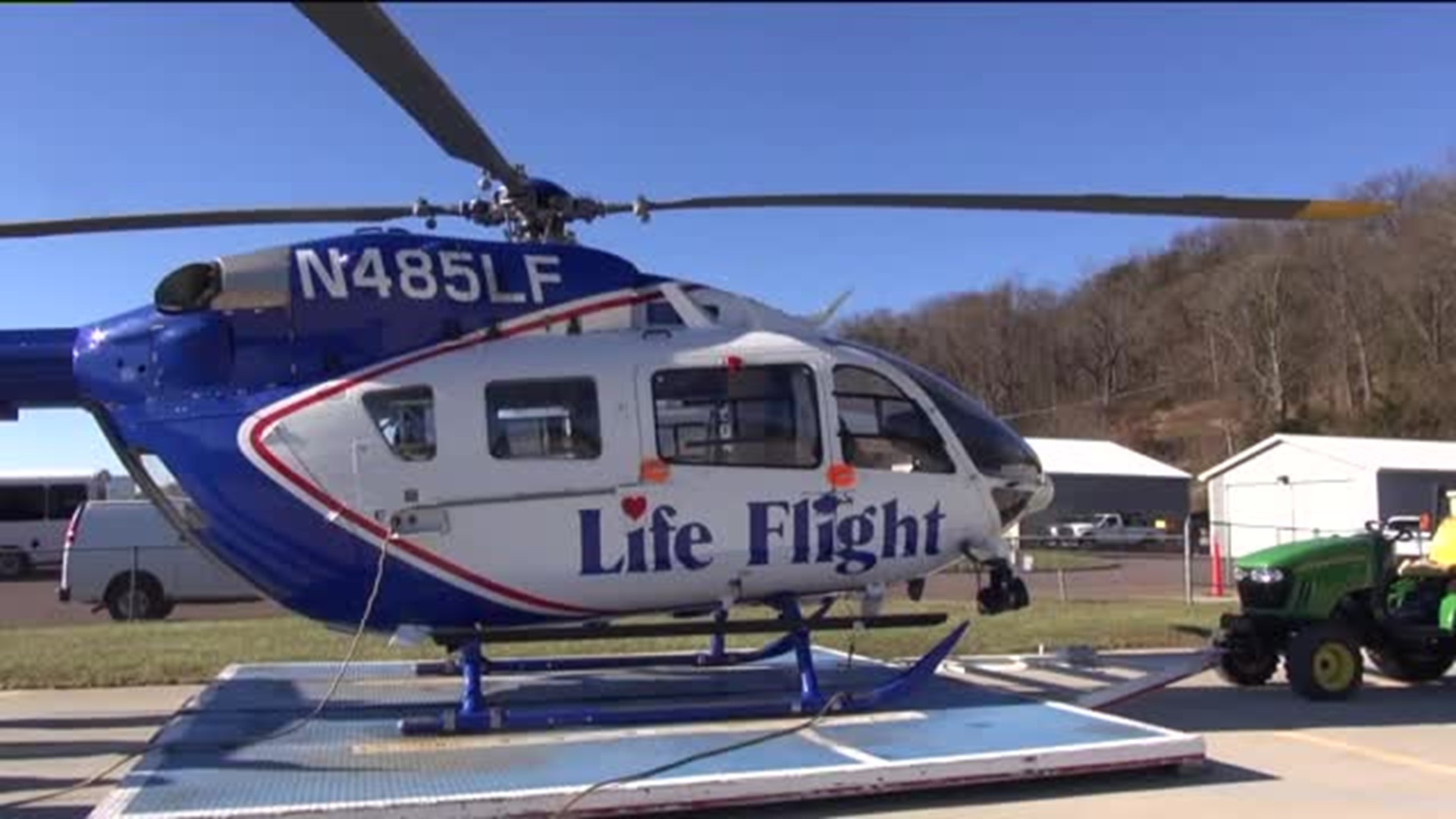MAHONING TOWNSHIP, Pa. -- When the temperature drops, some medical officials have different concerns than during the rest of the year.
Living in northeastern and central Pennsylvania, we know that winter can be fun, but it can also bring with it all sorts of pitfalls.
"We got ice. We got snow. The roads freeze at night and thaw in the day. We do see an uptick of those sorts of accidents."
Jerry Splitt is a Life Flight nurse based in central Pennsylvania with Geisinger Health System. Jerry met us to talk about all things flight, but in particular on this frigid day, about keeping patients warm.
Life blankets are specially made medical blankets -- part of them, reusable, another part, single-use only. They help the crew maintain a patient's body temperature, which is critically important in trauma situations.
"If we're picking up a patient from an accident scene that's been exposed for a while, they're going to lose body heat," Splitt explained.
"We're always worried about people coming in with what we call hypothermia. Their body temperature is lower than normal, so it's important we get them to a normal state. If we don't, there's a risk of bleeding and other complications," said Dr. Denise Torres, a trauma surgeon, and head of Trauma Services at Geisinger.
Dr. Torres says her department last year helped put life blankets on all medical helicopters.
"Even in the trauma bay, where it's warm, we're putting tons of warm blankets on patients so they're not losing body temperature quickly," Dr. Torres said.
Dr. Torres also says in the winter they'll see more motor vehicle accidents, skiing and sledding injuries, even slips and falls that can cause a lot of damage to a patient.
As for getting patients to the hospital in terrible weather, Splitt says they will fly every chance they get, as long as the crew thinks it's safe.
It's why they work on blind dispatch, meaning a pilot only knows point to point destination, not the circumstances.
"We don't want them making the decision based on patient condition. We want them making the decision based on the conditions for the flight," Splitt said.
Dr. Torres adds that it's really important to keep an eye on your neighbors and family members who may need a hand with snow or ice removal in the winter to avoid sometimes very serious injury.

